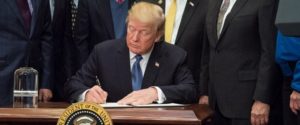
The US is once again staring down the barrel of a government shutdown, and the implications for investors in America and abroad are significant, warns the CEO of one of the world’s largest independent financial advisory and asset management organisations.
Congress has failed to pass the necessary funding bills, with the deadline expiring tomorrow. Unless lawmakers strike a last-minute deal, large parts of the federal government will grind to a halt.
The standoff comes against the backdrop of soaring deficits, an economy already showing cracks, and political divisions that are as wide as they have been in decades.
Nigel Green, CEO of deVere Group, comments: “Gold prices have already surged to record highs as investors move into safe-haven assets. Treasury yields are oscillating, with history pointing to declines during shutdowns, but the political rancour and concerns over debt could push them higher this time. The US dollar, which remains the global reserve currency, is vulnerable to shifts in confidence.”
He continues, “Shutdowns are not the same as defaults, but they send a damaging signal about political dysfunction in the world’s largest economy.
“Investors everywhere are forced to reassess risk, and that has ripple effects across asset classes and geographies.
“Shutdowns in the past have tended to be short and economically manageable, yet this one is being viewed with more trepidation.”
Since 1950, there have been 21 such episodes, most lasting only a few days. The longest, in 2018–2019, stretched on for 35 days and cost the economy an estimated $3 billion in permanently lost output. During that episode, the S&P 500 saw a correction, yields fell, and confidence took a hit.
What makes the looming shutdown more concerning is the context: slowing global growth, geopolitical shocks, and tighter monetary conditions.
“This is happening at a time when investors are already grappling with an unpredictable environment,” says Nigel Green.
“It magnifies volatility and could accelerate the flight of international capital away from US markets.
“We’ve already seen allocations to the US shrinking in recent times, and another political standoff could reinforce that trend.”
One of the overlooked but important consequences of a shutdown is the disruption to data collection.
Government agencies could halt the release of critical economic statistics, including job numbers and inflation reports.
Markets rely heavily on these indicators to set expectations for corporate earnings, interest rates, and currency valuations.“Without them, speculation fills the void, raising the risk of mispricing and abrupt swings,” notes the deVere CEO.
“Investors base decisions on reliable information. If reports on employment or consumer prices are delayed, it doesn’t just inconvenience economists, it destabilizes markets and complicates central bank policy. The absence of data at a critical time can cause lasting damage to sentiment.”
Equity markets are especially exposed. Short shutdowns are often brushed aside by investors, but prolonged ones dent confidence and trigger sell-offs.
Companies dependent on government contracts or regulatory approvals can face delays that hit revenues. Consumer confidence also tends to slip, which can feed into spending and earnings.
The symbolism matters as much as the substance for international investors. The US is still the largest and most liquid market, but recurring shutdown threats highlight political fragility. All this undermines the dollar’s allure as a safe-haven asset and strengthens the case for diversification.
“Investors should not be paralysed by political drama in Washington, but they should be pragmatic,” says Nigel Green.
“Holding quality companies with strong fundamentals remains essential. Diversification across geographies and asset classes is more critical than ever. Alternative assets, including gold, are once again proving their worth as part of a balanced portfolio.”
The political calculus in Washington is unlikely to improve quickly. Even if a temporary patch is found, longer-term agreements remain elusive.
The growing polarization means the threat of future shutdowns will remain, keeping a degree of permanent uncertainty embedded in US assets.
Nigel Green concludes: “Markets can live with economic cycles, even with inflationary pressures and shifting monetary policy.
“What undermines confidence most is dysfunction at the top. Every shutdown erodes the credibility of the US as a dependable steward of the global economy.”


